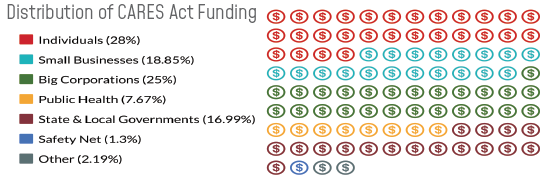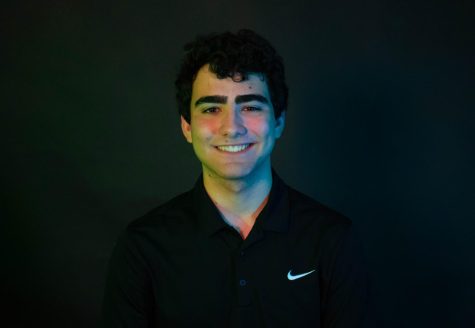
As much as the coronavirus is an infection of the body, it has infected nearly every aspect of society as well. Economies worldwide have been ravaged by uncertainty, and it has exposed the divisions of America even as the death toll continues to rise. But for many Americans, the coronavirus isn’t just hurting them in the present— it’s killing their futures.
Education funding is critical to the development of students and provides lifelong benefits. However, the coronavirus has had a massive effect on funding in both the private and public sectors, and schools and students are feeling the effects.
When the coronavirus swept through America in early March, schools were quick to switch to online learning. But many soon realized this wasn’t sustainable, and they would need a new plan for reopening in the fall.
“Why get students back on campus?” Head of School Byron Lawson said. “It’s the best way students learn. It’s the way we’re constructed. We are a day school, it’s the best way our teachers instruct. And for Trinity to continue to be the Trinity that it is, we had to hit those marks.”
Many students across the country found online learning to be a difficult experience. Inside Higher Education reported that teachers and students felt isolated and emotionally challenged while online, and Education Week explained that in studies conducted in multiple states last spring—including Florida—that online learning was comprehensively less effective, especially for students who already struggled before the transition.
“Our fight against COVID shouldn’t lead to us to deprive our kids of the tools they need to succeed,” Florida Governor Ron DeSantis said in a July press conference.
However, knowledge as to exactly what tools were needed was slim. Lawson said that the shifting nature of the coronavirus also added to this difficulty.
“That has been probably the single greatest thing about keeping up with corona[virus]; it has continued to change non-stop,” Lawson said.
However, adapting to those changes isn’t cheap.
“There is a lot of finance that goes into making a school safe enough in my mind for kids to come back live,” Lawson said.
Preventative measures like health and tech equipment are expensive, and government assistance was mostly nonexistent, especially for public schools. The CARES Act, a comprehensive coronavirus relief bill passed in March, included $13.5 billion for K-12 education, distributed to state governments.
However, the New York Times explained that through a combination of fine print and orders by the Trump administration, much of this money isn’t going to the students it was supposed to help. As reported by The New Republic, public schools would receive on average roughly $266 worth of funding per student, while some private and religious schools would receive over $5,000. While the order is being sued by multiple states, the future of this funding is currently in question. The Board of Trustees declined to comment on whether Trinity received funding.
This situation was worsened by Florida’s reopening order, which required public schools to open face-to-face in August or suffer reduced funding. Orange County estimated that, if they had opened virtually, they would have lost $22.5 million dollars in funding per month. And while the order was struck down in late August, for many it was too late— Orange County had reopened in-person the week before.
Part of this confusion has been sparked by national figures like Secretary of Education Betsy DeVos, who has garnered criticism for her actions surrounding reopening of schools.
NBC News reported that she has provided little guidance to state leaders other than repeated calls to open schools in full and in-person. And Brookings Institution explained that her efforts have politicized reopening to a point where some districts are being forced to ignore health warnings in order to be able to open at all.
This crisis, however, isn’t affecting schools equally. PBS warned that specialized and expensive learning plans are deepening already high education inequalities, and CNBC explained that current funding will leave poor and minority students at severe disadvantages.
“[Trinity students] have access to the same hardware often at school and at home,” Lawson said. “That’s not the case in some public schools. And so those points of inequity make it difficult to provide a consistent educational experience from before COVID to after COVID, and it’s the quality of education that we as an educator are all targeting.”
Pressure to reopen in person, combined with little guidance and funding for preventative measures, means that many schools are being forced to put the safety of their students up against the quality of their education. And with record cuts to education nationwide, the future of sustainable public education is in question.
But educators aren’t giving up hope. Lawson attributed Trinity’s relatively smooth transition to decade-long planning, including the one-to-one program and technology improvements. However, he also said that we need to reckon with how we can adapt to the new normal.
“I bet for a lot of people, they’re going, ‘Well, is [school] exactly like it was in January?’” Lawson said. “And I do not have an answer for that. What I can tell you is nothing is exactly like it was in January. But we’re trying to do the best we can.”



